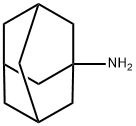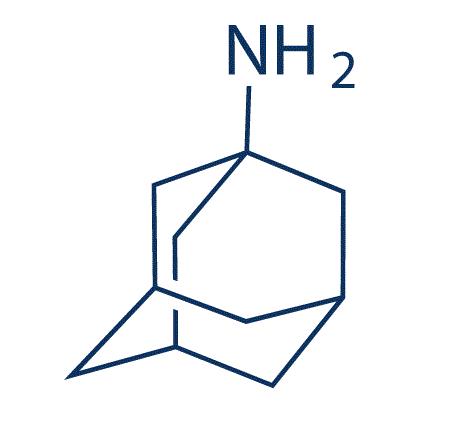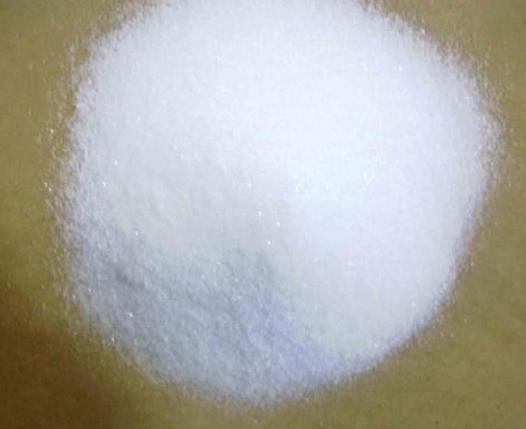Amantadine: antiviral and anti-Parkinson's double guard
Introduction
Amantadine, chemically known as 1-amino-amantadine, is an organic compound with unique pharmacological effects. Since its discovery in the 1960s, it has attracted much attention because of its dual effects of antiviral and anti-Parkinson's disease. This article will introduce its basic information, pharmacological action, clinical application, side effects, and precautions in detail to help readers understand this drug more comprehensively.1
Basic information
Amantadine, molecular formula C10H17N, molecular weight 151.25. It is a white to yellowish powder that is insoluble in water, but soluble in organic solvents. Absorption is rapid and complete after oral administration, peak blood concentration is reached 2 to 4 hours after administration, excretion is mainly through the kidneys, and the half-life is 11 to 15 hours.

Pharmacological action
Antiviral action:
Amantadine was originally developed as an antiviral drug, primarily for the prevention and treatment of respiratory infections caused by influenza A viruses. The antiviral mechanism may involve preventing the virus from penetrating respiratory epithelial cells, stripping the outer membrane of the virus, and affecting the release and replication of viral nucleic acid.
Anti-parkinson's effect:
Amantadine has been found to have significant anti-Parkinson's disease effects and has become one of the important drugs for the treatment of Parkinson's disease. Its mechanism may be to promote the synthesis and release of dopamine in the brain, reduce the reuptake of dopamine by nerve cells, and at the same time antagonize the effect of acetylcholine, so as to alleviate the tremor, stiffness, and other symptoms of Parkinson's disease.2
Clinical application
Antiviral therapy:
Amantadine is widely used to prevent and treat respiratory infections caused by influenza A virus. Starting prophylactic medication during influenza season, especially before contact with a person with influenza, can significantly reduce the risk of infection. Treatment should be started within 24-48 hours after the onset of the disease, and it should be continued for a while after the symptoms have disappeared to consolidate the effect.
Parkinson's Disease treatment:
Amantadine is ideal for Parkinson's disease patients who cannot tolerate levodopa therapy. It can be used alone or in combination with levodopa to reduce the symptoms of Parkinson's disease and improve patients' quality of life.3
Side effects and precautions
Common side effects: dizziness, insomnia, nervousness, nausea, vomiting, anorexia, dry mouth, constipation, etc. The probability of hallucination, psychosis, and other central nervous system adverse reactions in the elderly population is higher.
Rare and rare side effects: difficulty urinating, syncope, leukopenia or neutropenia, convulsions, etc. Long-term treatment may also cause side effects such as lower limb edema.4
Note:
l Activities requiring a high degree of alertness, such as driving vehicles, operating machinery, or working at heights, should be avoided during the medication period.
l The last dose should be taken before 4 PM to avoid insomnia.
l Do not drink alcohol during medication to avoid enhancing the central inhibitory effect.
l Treatment of Parkinson's disease should not be stopped suddenly, so as not to worsen the condition.
l Patients with a history of epilepsy, confusion, hallucinations, congestive heart failure, or renal insufficiency should be used under close supervision.
Conclusion
Amantadine, as a drug with dual efficacy of antiviral and anti-Parkinson's disease, plays an important role in clinical application. However, side effects and drug interactions cannot be ignored. Therefore, when using it is necessary to strictly follow the doctor's advice, pay attention to monitoring adverse reactions, and adjust the medication regimen according to the specific conditions of patients to ensure the safety and effectiveness of treatment. Through scientific and rational drug use, amantadine will continue to improve the health of patients. 5
Although amantadine was once used to treat viral diseases such as influenza, it has been gradually replaced by other safer alternatives as medical research has progressed, so it is rarely seen in real life. If you need to know about the latest antiviral drugs or treatments, it is recommended to consult a medical professional.
References:
[1] K BOMAN J P E Kivalo. [Amantadine treatment in Parkinson’s disease].[J]. Nordisk medicin, 1970, 84 48.[2] T NAKAGAWA. Amantadine and pneumonia.[J]. The Lancet, 1999, 353 9159. DOI:10.1016/S0140-6736(98)05805-X.
[3] P MILLAC. Amantadine in Parkinson’s disease.[J]. The Lancet, 1970, 1 7644. DOI:10.1016/s0140-6736(70)90850-0.
[4] OLIVIER RASCOL W P Margherita Fabbri. Amantadine in the treatment of Parkinson’s disease and other movement disorders.[J]. Journal of Medicinal Chemistry, 2021. DOI:10.1016/S1474-4422(21)00249-0.
[5] JOSEPH T GIACINO. Placebo-controlled trial of amantadine for severe traumatic brain injury.[J]. New England Journal of Medicine, 2012, 366 9. DOI:10.1056/NEJMoa1102609.
Related articles And Qustion
Lastest Price from Amantadine manufacturers
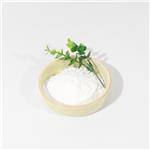
US $0.00-0.00/KG2025-10-08
- CAS:
- 768-94-5
- Min. Order:
- 1KG
- Purity:
- 99%
- Supply Ability:
- 500kg
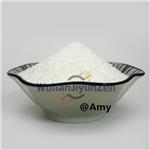
US $5.00-0.50/KG2025-05-30
- CAS:
- 768-94-5
- Min. Order:
- 1KG
- Purity:
- 99% hplc
- Supply Ability:
- 500TONS
